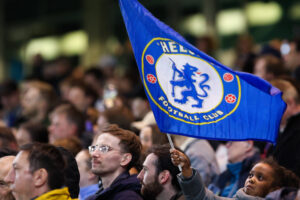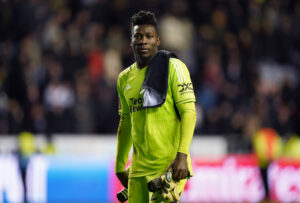The news that most Arsenal fans have been waiting for has finally been announced – Arsene Wenger will leave the club at the end of the season.
At his usual Friday pre-match press conference today, Wenger announced that he will leave the club after 22 years. He said, “I am grateful for having had the privilege to serve the club for so many memorable years. I managed the club with full commitment and integrity. To all the Arsenal lovers, take care of the values of the club.”
Over the coming days and weeks, until Wenger finally leaves Arsenal, there will be eulogies aplenty but also many damning diatribes written about him. That dichotomy perfectly captures the split, even schizophrenic, nature of his two decades at the club.
In his first decade at Arsenal (1996-2006), Wenger was a truly great manager. He achieved something that is arguably not only unique in the history of Arsenal but unique in the history of football. Arsenal had of course been successful before Wenger took over, but that had largely been success without style. As any true Arsenal fan will know (especially the older ones among us), for most of the 20th century Arsenal were famous for being functional, even dull. That went back to Herbert Chapman, when there were only two points for a win and Chapman famously told his players that they began each match with a point and should retain at least that one point. It continued, to a greater or lesser degree, right up to George Graham’s time at the club, when he won two league titles, a European Cup Winners’ Cup and several domestic cups. However, as he has himself admitted since retiring from the game, he never fully let his players off the leash.
When he first came to the club in 1996, Wenger changed all that, almost instantly. Much has been written about his changes to the players’ diets and training methods, but the single most important change that he made was to make the team more attacking and less dependent on its (admittedly excellent) defence. Over the next 10 years, he would sign a succession of stellar talents – Nicolas Anelka, Emmanuel Petit, Patrick Vieira, Robert Pires, Sylvain Wiltord and, above all, Thierry Henry – who would not only win trophies, like their predecessors but, unlike their predecessors, win them with glorious, imaginative, attacking play. The peak was the “Invincibles” season of 2003-04, when, for the first time in more than a century, a team won the top division in England without losing a single game. And after an FA Cup thrashing of Portsmouth that season, Alan Hansen described Wenger’s Arsenal as the finest attacking side that he had ever seen in England.
That team was so great that it should, rightly, have won a European Cup, and arguably not just once but twice, in 2004 and 2006. Unfortunately, on both occasions they were fatally undermined by errors by the one player in the side who was less than stellar – goalkeeper Jens Lehmann. In the Champions League quarterfinal against Chelsea in 2004, he was directly responsible for two of the three goals that Chelsea scored against Arsenal over the two legs. In 2006, he partly redeemed himself by helping Arsenal to win their Champions League semi-final against Villareal (saving a last-minute Villareal penalty in the second leg). However, he was then sent off early in the final for a reckless challenge. The team did superbly well for most of the game to hold Barcelona at bay, even taking the lead, but they finally succumbed to two late goals.
Ultimately, it was all downhill from there. The second half of Wenger’s tenure (from 2006 to now) was nowhere near as good as the first. There are many reasons for that, including the move to a new stadium and the acrimonious departure of Wenger’s right-hand man David Dein from the board in 2007. The biggest single reason, however, was the decade-long inability to build a defence (including the goalkeeper) that was even half as good as the fabled “back four” (“back five” including David Seaman) that Wenger had inherited when he came to the club.
That defence, which is often described as the finest post-war club defence in English football, was the basis for all the sublime attacking play of Wenger’s early teams. However, the only truly significant defensive addition that he made after Adams, Keown et al began to tire and eventually retire was to poach Sol Campbell from arch-rivals Spurs. Campbell may not have been very good on the ball, unlike most Wenger players, but, for much of the five years that he spent at the club, he was not only the best defender in England but arguably the best defender in the world. He was a centre-back with the speed of a full-back and it is arguable that it was his signature (allegedly at Dein’s insistence), rather than those of Henry, Vieira and all the other attacking players, that was the single most significant one in Wenger’s twenty years-plus at the club.
That decline in Arsenal’s defensive ability has only gathered pace this season and especially in the last few weeks. To give just one example, Shkodran Mustafi has been absolutely exposed as a centre-back who has neither the height nor the pace to play at centre-back. Although he is often described as a “World Cup winner”, the truth is that he was only ever a squad player for Germany in 2014 and so poor have been his performances this season that it must be highly unlikely that he will be selected by Germany for this year’s tournament in Russia.
Now that Wenger has finally announced that he will leave the club, he can be given the send-off that he deserves. That will principally be in recognition of his extraordinary, even unprecedented, achievements in his first decade at Arsenal. At the same time, after the long decline of the last decade or so, there will be numerous fans who will be happy that he is leaving. Arsene Wenger was the first Arsenal manager who ever created a truly attractive, attacking Arsenal team. However, he was also the first Arsenal manager to oversee such a long period of stagnation at the club, particularly in the defensive ranks. And so we say both “Merci, Arsene” but also, to some’s relief, “Au revoir”.
Main image:






